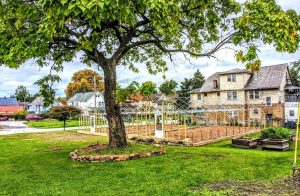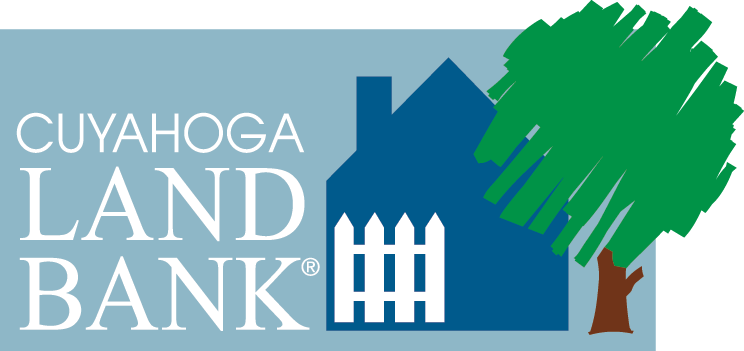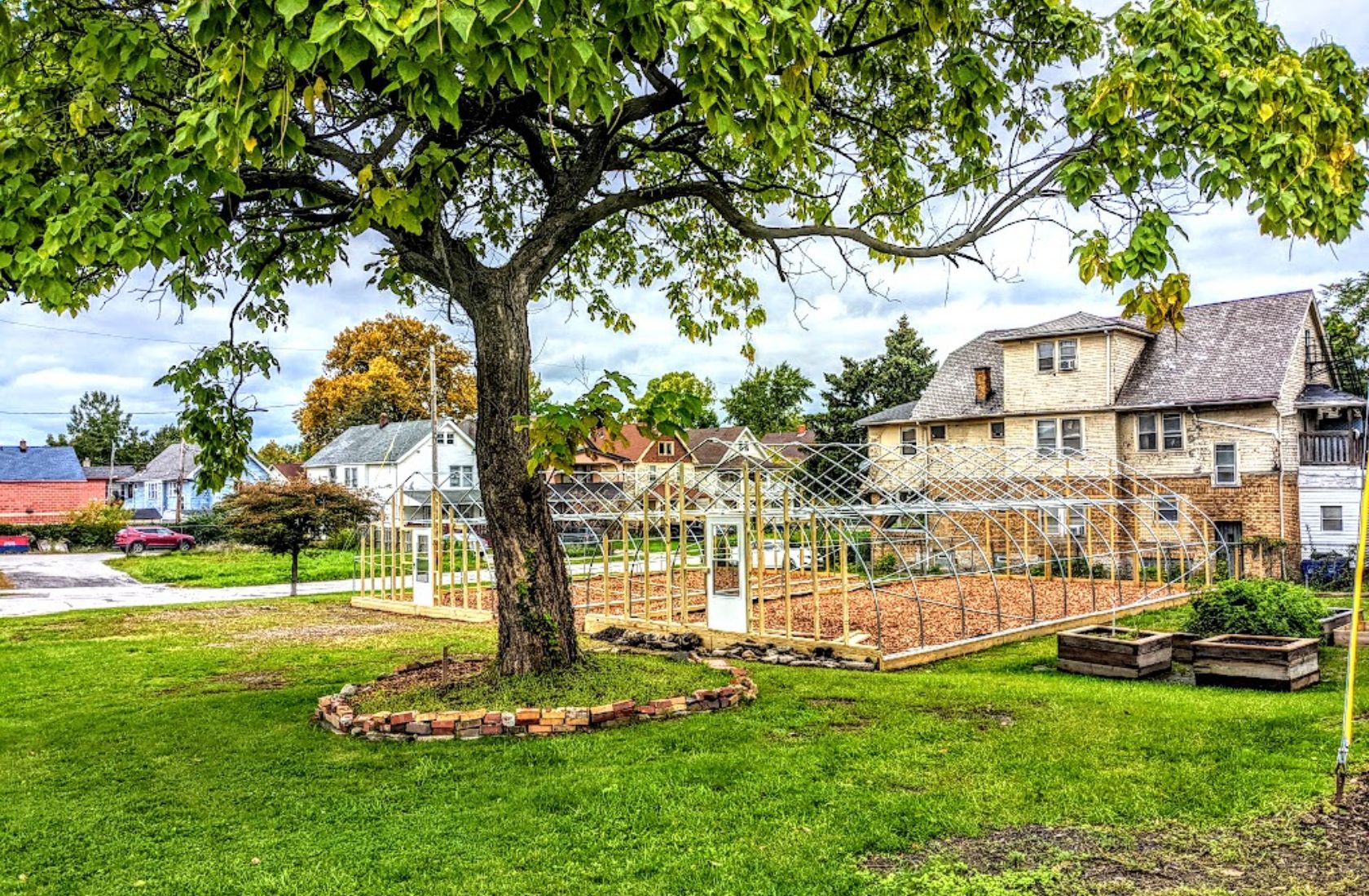
Vacant properties, once eyesores and reminders of blight, are being transformed into vibrant oases of green, known as urban gardens. These community-driven initiatives beautify neighborhoods and foster a sense of connection, sustainability, and healthy living.
Vacant properties, often remnants of demolition or economic downturn, have long plagued urban areas like Cleveland. These neglected spaces attract litter, crime, and a sense of decay, detracting from the overall well-being of communities. However, a growing movement is recognizing the potential of these vacant lots to become catalysts for positive change.
The Cuyahoga Land Bank works with many local groups transforming vacant lots into thriving ecosystems. Here are a few examples of our recent collaborations:
Elements of Internal Movement (EOIM) is an artistically driven non-profit that combines the priority of wellness, creative expression, and community to foster personal and community transformation. Led by Shirley Bell, EOIM recently transformed two donated Cuyahoga Land Bank parcels in Cleveland’s Mt. Pleasant/Buckeye neighborhood for the group’s ReLove Urban Farm initiative that provides gardening, nutrition, and sustainability educational opportunities.
Shalom & Tranquility Community Garden
Founded by Ebonie Joiner, a mother of two special needs children in a neighborhood with limited exposure to the value of eating homegrown food, the Shalom & Tranquility Community Garden is seeded on two Land Bank donated parcels in Cleveland’s Brooklyn Centre neighborhood. The community garden provides a space for all types of families to be educated about health and build community, all while sharing in the shalom the garden brings.
Co-founded by Asad Shabaz, Chad Anderson, and Julialynne Walker, the Urban Farmer’s Coalition collaboration comprises over 30 black farmers, 10 chefs, four black-owned restaurants, and catering companies focusing on food deserts plaguing urban communities. The group entered into a lease to purchase agreement with the Land Bank in the Glenville neighborhood of Cleveland. The goal is to educate low- and moderate-income families on how to create their own urban farms or participate in local food co-ops that provide opportunities to access fresh produce within their community.
Brookdale Orchard Community Garden
Led by resident Mittie Jordan, the Brookdale Orchard’s Gardens of Fruit, Myrtle & Forget-Me-Nots was created by the group on land donated by the Cuyahoga Land Bank. The space comprises 58 gardens on 14,650 square feet of land in Cleveland’s Hough neighborhood. The orchard is anchored by St. Matthew United Methodist Church, of which Ms. Jordan is a life-long member. Beyond providing agricultural education, training and employee ownership opportunities for neighboring residents, the Orchard promotes fresh food sources and preserves the natural environment for peaceful community growth and gatherings.
Crooked Branch Farms
Anita Gardner founded the Concerned Citizens Community Council in 2008 to help address the needs she saw in her Mt. Pleasant neighborhood in Cleveland. More recently, she and Envision Cleveland, a ministry of the local Christian and Missionary Alliance Churches (USA), helped launch Crooked Branch Farms, an urban farm focused on growing vegetables and fruit for the community. Located on four vacant lots donated by the Cuyahoga Land Bank, the farm abuts a hoop house that was also co-sponsored by the Land Bank. The farm also includes chickens and aquaponics. This year, Crooked Branch Farms was designated as one of the first U.S. Department of Agriculture People’s Gardens nationwide, an honor given to gardens or farms in urban areas that benefit the communities around them.
“It is so gratifying to see urban gardens springing up on these once-vacant properties, transforming them into hubs of activity and life,” says Cuyahoga Land Bank President and General Counsel Gus Frangos. “These gardens serve as community gathering spaces, providing residents a place to connect, learn, and cultivate a shared sense of ownership over their neighborhoods. In addition to their social benefits, urban gardens play a crucial role in promoting environmental sustainability and provide a direct connection to fresh, nutritious food.”

